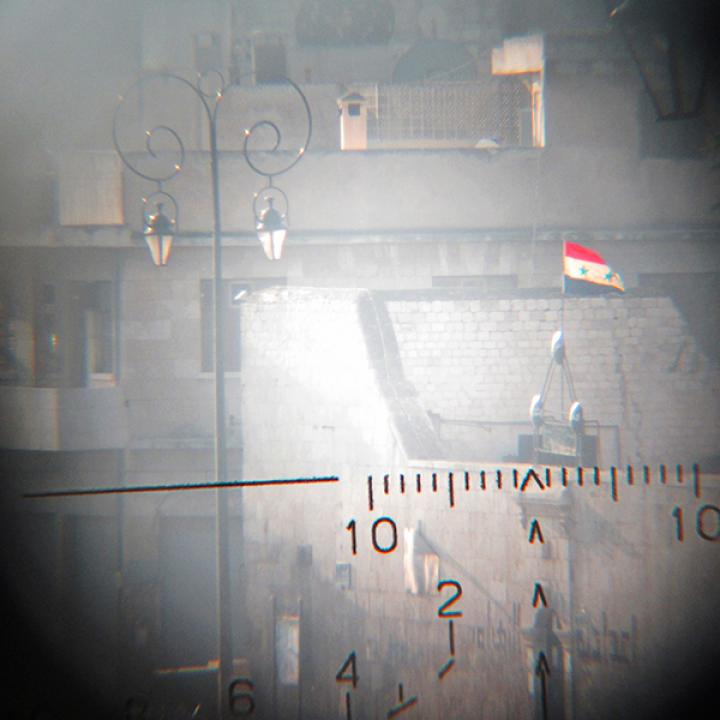

A Syria expert offers three bold steps to hasten the end of Assad's regime.
This piece is part of "Obama and the Middle East: Act Two," a series of policy proposals for the president's second term by Washington Institute fellows.
The Assad regime's brutal suppression of the Syrian uprising has spurred a humanitarian disaster, with the United Nations now estimating over 60,000 killed and 3 million displaced. Syrians are now dying of starvation and exposure as food and medical supplies run desperately short. The regime continues to escalate its attacks with the use of artillery, combat aircraft, and, most recently, SCUD and reportedly Fatah 110 missiles against the armed and civilian opposition.
The Obama administration has repeatedly voiced its concern that the Assad regime is considering using its chemical weapons stockpile, which includes sarin nerve gas and mustard gas, against its domestic opponents. The U.S. government reportedly even investigated the possible use of a chemical agent last month in Homs. At the same time, Washington has refused to fulfill the opposition's request for more and better weapons that would help it end the regime's onslaught, sowing anti-American sentiment that is being increasingly harvested by Islamic extremists and al-Qaeda affiliates. There is now a real danger that the regime's chemical weapons could fall into the hands of militants sworn to destroy the United States and its regional allies.
With U.S. elections now settled, the Obama administration is less constrained by domestic U.S. politics and should now take bold steps to hasten the end of Assad's regime. The fight to take down the regime and its supporters may continue for some time, and divisions between opposition groups mean the struggle for what replaces it may be conflict-ridden as well. Even as the war continues, Washington should take steps to ease human suffering and place itself in a better position to secure chemical weapons from use in Syria and elsewhere.
First, Washington should use Patriot missile batteries in an offensive capacity against regime aircraft -- and deploy them defensively against SCUD and Fatah 110 missiles targeting opposition-dominated areas along Syria's borders with Turkey and Jordan. A package of the Patriot missiles recently deployed to southern Turkey augmented with an anti-aircraft capability, for example, could be used to carve out a 50-mile air exclusion zone from the Turkish border city of Kilis to Aleppo, Syria's largest city. This would help the opposition create vital "safe areas" where civilians could be secure in an organized fashion free from regime airstrikes as the war against Assad continues.
As an important ancillary benefit, such safe areas would provide a vital place for the exile-dominated National Coalition for Syrian Revolutionary and Opposition Forces (SOC) to politically organize and provide assistance directly to Syrian civilians. If properly defended, diplomats, officials, and aid representatives from the international community could work side by side with Syrians to help alleviate suffering and build a viable government for post-Assad Syria. When fully "liberated" areas under opposition control expand beyond the border regions to Syria's interior, the United States and its allies could follow up with targeted air and missile strikes against Assad regime forces armed with chemical weapons or poised to carry out further mass atrocities.
Second, Washington should provide a package of intelligence-sharing, military training, and other security assistance to mainstream nationalist, non-extremist groups that have been vetted by Western countries, both to increase their military capabilities and in exchange for any chemical weapons captured from the regime's stockpiles. The package should be comprehensive enough to allow participant groups to more rapidly defeat the Assad regime's forces and more effectively secure chemical weapons. Groups receiving assistance would be required to allow U.S. and allied special forces to collect and secure captured stockpiles of chemical weapons.
Third, Washington and its allies should provide local communities supporting mainstream groups that cooperate with Washington's program to secure chemical weapons with a larger civil assistance program. Large swaths of Syrian urban and rural areas have been ravaged by war, and the task of providing services and rebuilding basic infrastructure will be extensive. Such a civil assistance program, if part of an overall strategy, would create a positive incentive for civilian communities to pressure armed groups operating in their areas to comply with the program in the short and medium term. This same system of incentives could also be leveraged to disincentivize ethnic cleansing.
Such an integrated plan would help alleviate the suffering of Syrians, reverse Washington's rapidly declining support among the opposition, and provide real inducements to armed groups that will soon take over large swaths -- if not the entirety -- of Syrian territory to hand over any captured chemical weapons to the United States and its allies. Washington's efforts could be combined with those of Russia, Assad's chief international patron, as well as China, to pressure the Assad regime or any Alawite-dominated rump regime to secure what remains of the regime's stockpile. This approach would help keep chemical weapons from being used not only in the struggle for Syria, but against its neighbors and the West. It would also create incentives for armed and civilian groups in Syria to cooperate and assume the responsibility that goes along with governing a post-Assad Syria.
Andrew J. Tabler is a senior fellow at The Washington Institute and author of In the Lion's Den: An Eyewitness Account of Washington's Battle with Syria.
The Atlantic



